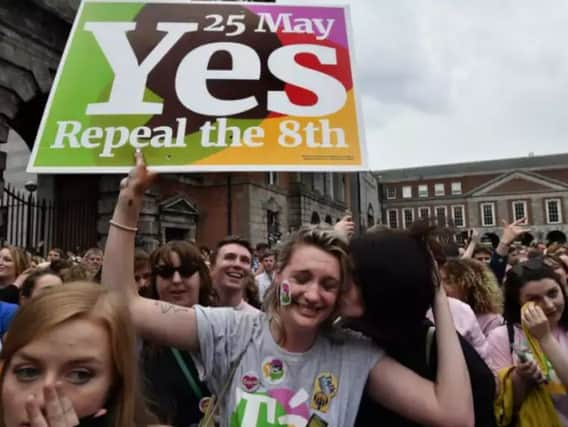Supreme Court says NI abortion laws 'incompatible' with human rights


A majority of a seven-strong panel of Supreme Court justices ruled the Northern Ireland Human Rights Commission (NIHRC) had no legal standing to bring its challenge against the abortion law.
But, by a majority, the judges also strongly expressed their opinion that the current laws are incompatible with article 8 of the European Convention on Human Rights - the right for respect for private and family life.
Advertisement
Hide AdAdvertisement
Hide AdDeputy Supreme Court president Lord Mance said the present law "clearly needs radical reconsideration" and that the opinion of the court - while not legally binding - "cannot safely be ignored".
Answering an urgent question in the Commons on the ruling, Northern Ireland Secretary Karen Brady told MPs that the government was "carefully considering the judgment and its implications".
Campaigners welcomed the ruling, saying it should force minister to act. Shadow Attorney General Shami Chakrabarti said the Supreme Court "has made clear that abortion laws in Northern Ireland violate fundamental human rights and has called for a radical reconsideration of the law.
Baroness Chakrabarti added: “The Government cannot ignore this ruling and cannot continue to turn a blind eye to this injustice, which denies women in Northern Ireland their fundamental rights, upheld across the rest of the UK."
Janet Farrell, a solicitor representing Humanists UK who intervened in the NIHRC case, said: "This landmark case from the UK’s most senior court confirms what Northern Ireland women know only too well – that the current law on abortion in Northern Ireland simply does not afford women the dignity or personal autonomy demanded by human rights law.
"It is up to lawmakers now to review and radically reconsider the law as the Supreme Court expects and the women of Northern Ireland deserve."
Unlike other parts of the UK, the 1967 Abortion Act does not extend to Northern Ireland.
Abortion is illegal except where a woman's life is at risk or there is a permanent or serious danger to her mental or physical health. Anyone who unlawfully carries out an abortion could be jailed for life.
Advertisement
Hide AdAdvertisement
Hide AdThe Northern Ireland Assembly voted in February 2016 against legalising abortion in cases of fatal foetal abnormality and rape or incest.
The debate on Northern Ireland's restrictions on abortion has intensified after citizens in the Irish Republic voted by a landslide last month to liberalise the state's laws. An emergency debate on the issue was held in the House of Commons on Tuesday.
